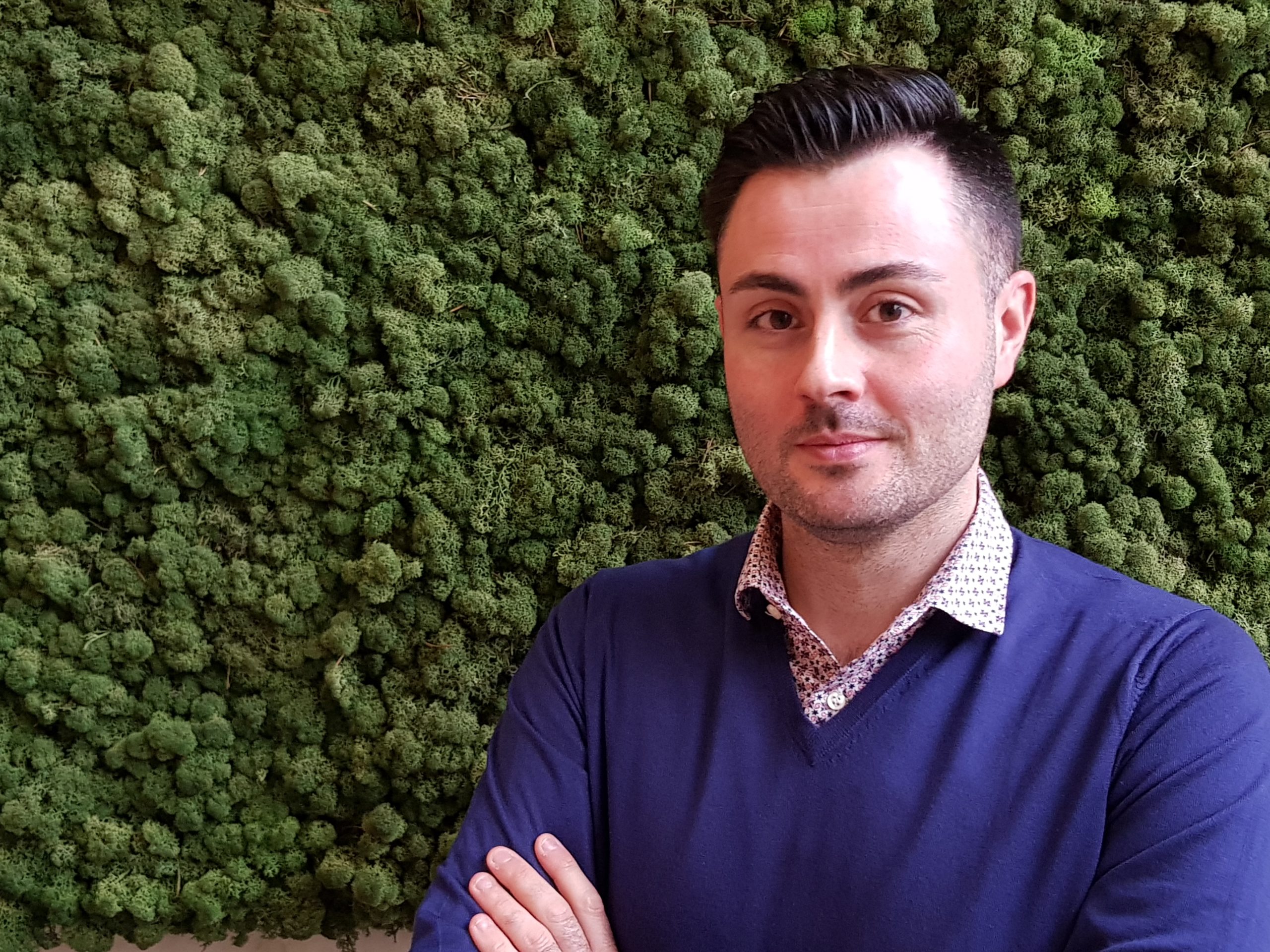During Education Day 2017, Anton Akhmerov, Pieter Bots, Pasquale Cirillo and Kevin Cowan were appointed TU Delft Education Fellows. Each fellow will receive € 50,000 to carry out an innovative educational project. In the fourth of a series of their projects, we today look at Pasquale Cirillo.
Pasquale Cirillo: "It is risk that depends on us because our definition of risk is always subjective." (Photo: Connie van Uffelen)
People tend to see risk as negative. “Of course there are some bad risks, but without risks, there are no opportunities to build something better,” says assistant professor Pasquale Cirillo of the faculty Electrical Engineering, Mathematics and Computer Science.
Cirillo aims to increase risk consciousness and management within TU Delft by developing two activities. The first is an online course called ‘Risk Mind(s) – The Logic of Risk’ which can be attended at any time. The second is ‘The Risk Lab’, a series of events and experiments on campus, open to all students and staff, about risk perception and decision-making.
In his online course, Cirillo will start with the philosophy and the logic of risk. “Risk only exists because of us. Without humans there are no risks. An earthquake is only perceived as risky because people may die and infrastructure may be destroyed. But if there is an earthquake on Pluto, nobody cares because there no human beings involved.”
Our perception of risk also differs. “An earthquake in The Netherlands would be tremendous news for Dutch people. An earthquake in New Zealand is perceived as less dangerous and risky because it is far away for the Dutch. It’s just human.” Risk is connected to probability, which you can express mathematically.
For his online course, Cirillo would like to have examples from other faculties and discuss them with colleagues. His final goal is to develop one common bachelor course that is part of all the curricula within TU Delft.
His Risk Lab will be more of a live experiment on campus, Cirillo says. “A series of events and meetings with experiments related to risk. I am thinking of a series of seminars and events in different faculties or in the Aula. We meet and speak about topics such as financial risk, for instance. Let’s consider you are the buyer, someone else is the seller and this is the price, what do you do? Or, we are building a bridge: you are the engineer, and this guy is the first driver to cross the bridge. Let’s see how we would behave in this situation.”
Cirillo will also deal with the ethics of risk management and modelling. In his own faculty, students are required to follow a course related to the ethics of mathematical models. “These models are used everywhere in engineering. When your model doesn’t work, you have to be transparent and admit it because it could be used to build a bridge or a car, for example.”
Cirillo thinks that students are not aware of the fact that risk ‘depends on us’. “It is not us depending on risk. It is risk that depends on us because our definition of risk is always subjective. For example, there are students who willingly take an exam without really studying. If they fail the first time, it is okay. If they fail the last exam before they can graduate, it is a different thing. So it is always very subjective. Your perception of risk depends on you, and if the world changes and the risk changes, your behaviour also changes. There is a feedback loop.”
Also read:
How students experience peer review and appraisal
‘Students actively exploring science right from the start’
Grading more systematic and less time-consuming
Do you have a question or comment about this article?
c.j.c.vanuffelen@tudelft.nl


Comments are closed.